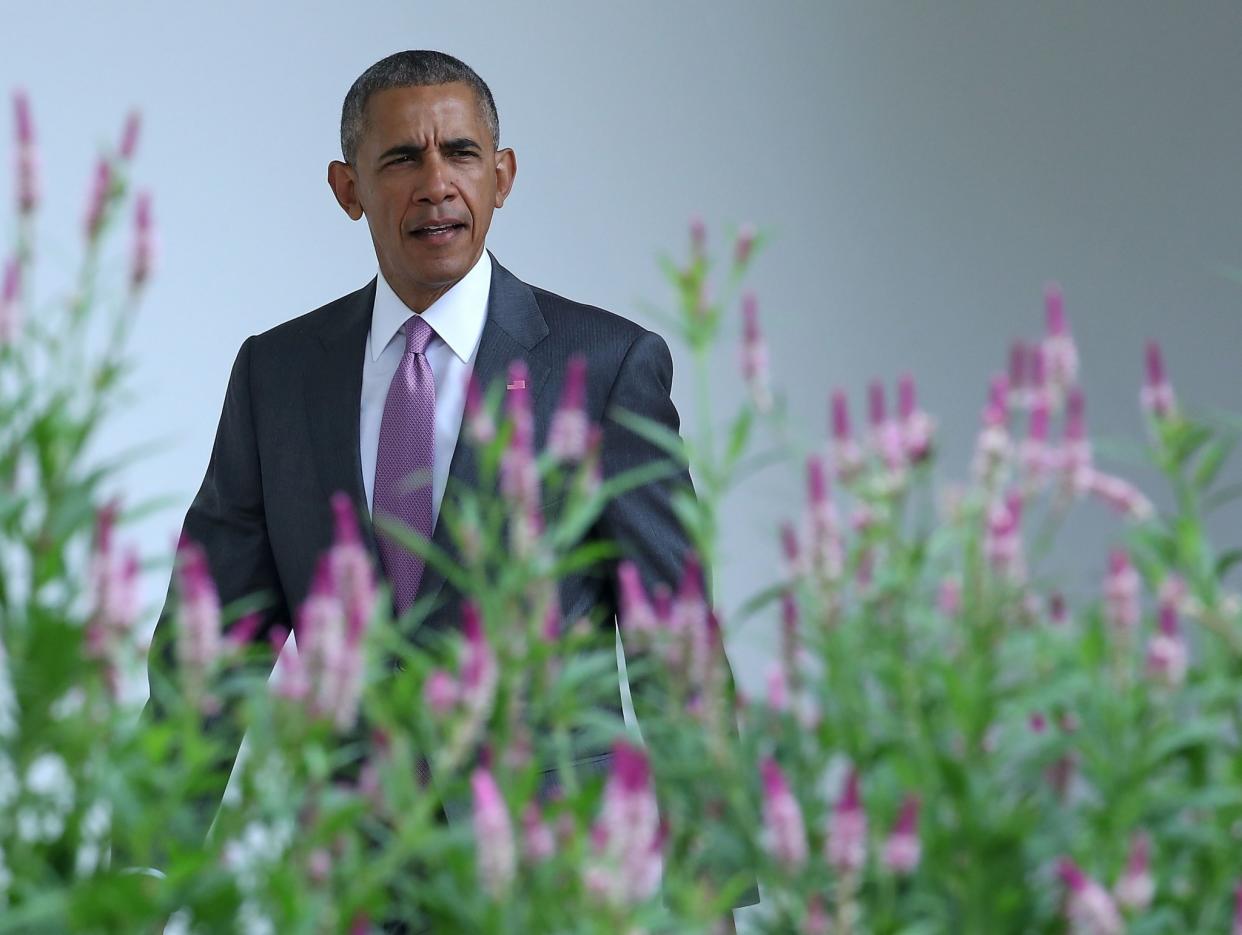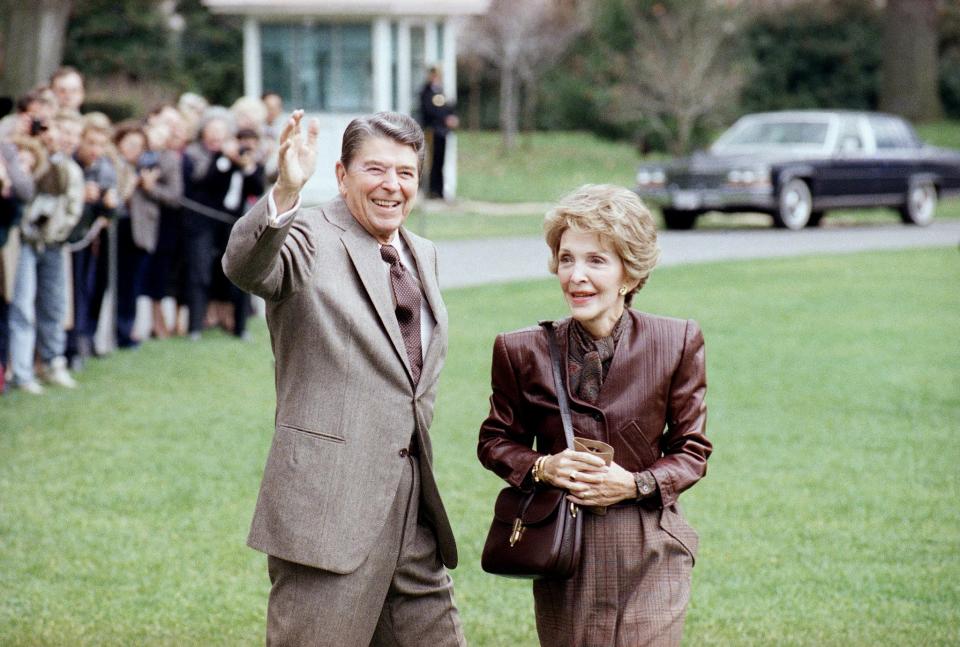Weighing Obama’s legacy — and what it may mean for Clinton

Wednesday evening, when President Obama takes the stage at the Democratic convention, he will have less than six months remaining in his second term. He comes to the convention at a time when Americans scorn much of Washington officialdom and professional politicians, but with approval ratings that match Ronald Reagan’s in his own last year in office. In September 1988, 53 percent of voters approved of Reagan’s performance. Earlier this month, according to a New York Times/CBS News poll, the same percentage approved of Obama’s performance.
With so little time left in the White House, his legacy partly rests, of course, on whether Hillary Clinton succeeds him and preserves his policies. Thus, Obama’s speech will focus on Clinton’s record, resolve and ideas. The subtext will be Obama’s own legacy — and why it’s worth preserving.
This is Hillary Clinton’s convention. She shattered a barrier Tuesday night. But, while the Clintons are dominating the conversation, it’s worth recalling that eight years ago, amid a heated Democratic primary, Obama criticized Bill Clinton’s presidential gradualism and promised to move the country in a more progressive direction, just as Reagan changed it by making it more conservative.
Eight years on, we can begin to tackle the question: Did Obama succeed?
Of course, any president’s historical reputation ebbs and flows. Based on economic and social conditions at any given moment, shifting cultural norms, and the consequences of the president’s policies, perceptions are malleable and subject to reevaluation. Shifts in how voters see a president’s legacy can also influence politics in the present; if voters hold rosy views of Bill Clinton’s presidency, that would boost any Democrat’s presidential prospects — especially Hillary Clinton’s.
Has Obama changed the direction of the country? If Reagan was a two-term, politically successful pragmatic conservative, then Obama should be considered a two-term, politically deft pragmatic progressive. While he has failed to enact some key policies (gun control, infrastructure repair), he has made his party more ideologically progressive and has deepened the country’s commitment to social equality while bringing the issue of economic fairness closer to the center of public debate.
To be sure, his legacy, like any other president’s, is a mixed bag. Most notably, over the past eight years, the Democratic Party at the congressional and state levels has been hollowed out, threatening to undo some of his achievements. Politico reports that since 2009, Democrats have lost 13 net Senate seats, 69 net House seats, 11 net governorships and 913 net state legislative offices. (Obama entered office with large congressional majorities, so some net loss was probably inevitable.)
If the Democratic bench is thinner, though, arguably Obama’s legacy is as strong as Reagan’s was in 1988. In the face of intense partisan opposition, he managed to raise taxes on the richest Americans, making the tax code more to progressives’ liking. His signature health care reform unquestionably expanded access to health care for millions of Americans. His stimulus bill, in the view of most economists, helped arrest spiraling unemployment and prevented an even greater economic collapse. The Dodd-Frank consumer protection law that Obama championed more tightly regulates big banks, and his decision to rescue General Motors represented a successful intervention that prevented even worse job losses and helped save communities from a devastating bankruptcy.

His foreign policy legacy has similarly offered Americans a more progressive 21st century vision of America’s role in the world. There’s the historic nuclear deal with Iran, his unexpected opening to Cuba and his groundbreaking climate change pact. Iraq remains a disaster, the Islamic State has spread death worldwide and Afghanistan is still chaotic. But Obama will get credit for killing Osama bin Laden and for reaching out to the Muslim world with a tone of respect and a vision based on shared values. (See, for example, his 2009 Cairo speech.)
While Obama has failed to build a robust party machinery or a farm system of progressives to defend his achievements in 2017 and beyond, he has, for the most part, provided a progressive vision of social equality through his policies and his oratory. As a vocal exponent on the side of reason, human rights, civil rights and against violence, he has had a greater cultural impact than almost any other president in recent decades. His speech after the murder of nine African-American worshippers in a Charleston, S.C., church was one of many that had a healing effect on a country wracked by gun violence. Future historians may judge that he helped to move the politics of gun control in a progressive direction. As the first African-American president and a fervent defender of social equality, Obama has defined America as a cosmopolitan, increasingly heterogeneous country — by promoting LGBT rights and fostering nascent efforts to reform the criminal justice system, and with executive actions allowing “Dreamers” to stay in the United States legally.
Above all, he displayed a rare ability to speak effectively to multiple communities in a nation that has always been fractured along racial and class lines. The judges he appointed will stamp a progressive legacy on the federal courts for decades. Whatever Clinton’s fate in November, Obama’s electoral coalition will likely be the template for Democratic candidates for years to come.
The party that Obama addresses tonight has been transformed since Bill Clinton’s White House years. On criminal justice, poverty, same-sex marriage, financial regulation, the minimum wage and gun control, Democrats have moved leftward. Even those who disagree with this direction have to acknowledge the huge impact of a president certain to receive a hero’s welcome from the convention hall.
Matthew Dallek, an associate professor at George Washington University’s Graduate School of Political Management, is author of “Defenseless Under the Night: The Roosevelt Years and the Origins of Homeland Security.”
_____
Related slideshows:
On the ground at the DNC — a photo report >>>
How newspapers covered the historic second day of the DNC >>>
Bernie Sanders’ supporters make a last stand >>>
Sanders supporters weep at DNC >>>
How newspapers covered the DNC’s first big day >>>
Demonstrators protest outside the DNC >>>


